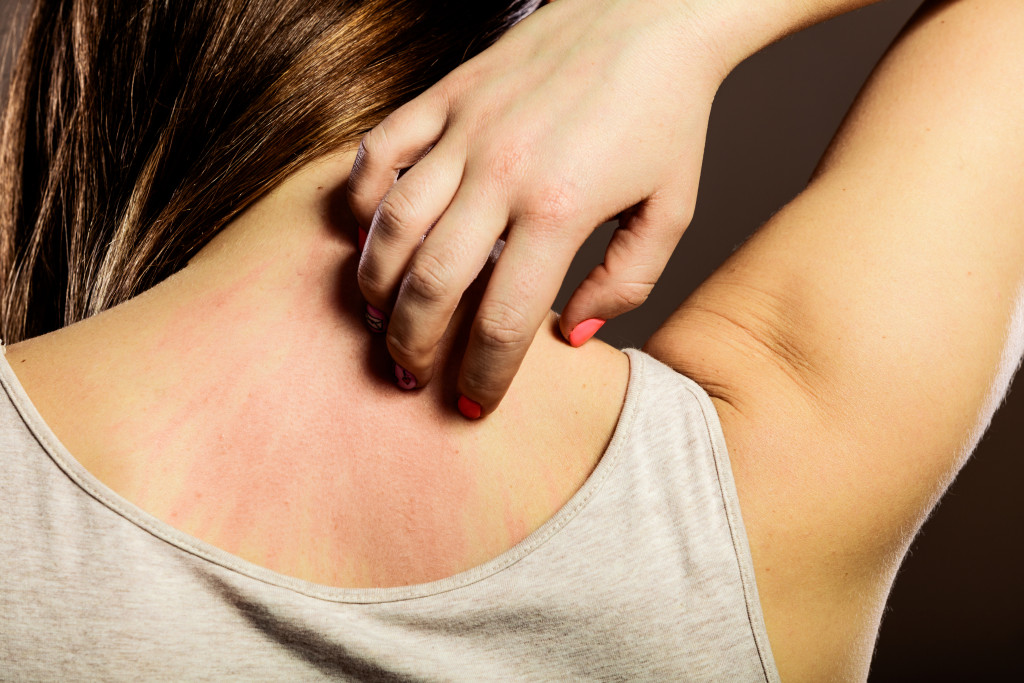- Allergies are common among children and can be caused by various allergens, including food, outdoor, and indoor allergens.
- Diagnosis by a pediatrician is key to identifying allergens through skin or blood tests.
- Effective management of allergies involves identifying and avoiding triggers, undertaking renovations to reduce allergen exposure, and more.
- Avoidance is the best way to prevent allergy symptoms, including by allergy-proofing your home with air filters, frequent cleaning, and washing bedding often.
As a parent, you want nothing but the best for your children, especially when it comes to their health. However, sometimes, it’s not always easy to know what’s best, particularly when your children have allergies. Allergies affect millions of children worldwide, and as a responsible parent, it is essential to be aware of what causes these allergies and how to manage them effectively.
Allergies Among Children
Allergies are quite common among children. Millions of children have it in the country, and it can be quite expensive to deal with it. Here’s everything you need to know about your children’s allergies, including what they are, how they can be diagnosed, and how to identify and manage allergic reactions.
What Are Allergies?
Allergies occur when your child’s body reacts to harmless substances as if they were dangerous invaders. These substances, known as allergens, can take many forms, including pollen, dust mites, mold, pet dander, or even certain types of food, such as peanut butter or shellfish. When your child’s immune system comes into contact with these allergens, it releases a chemical called histamine, which causes an allergic reaction.
Diagnosis
If you suspect your child may have allergies, your first step should be to consult your pediatrician. Your doctor can perform allergy tests to determine the substances your child is reacting to. These tests may include skin, blood, or a combination of both.
Identifying and Managing Allergies
There is no cure for allergies, but there are ways to manage them. Here are ways to do that:

Identify Allergens
Some common allergens cause allergies in children. It is essential to identify the allergens that trigger your child’s symptoms and take steps to avoid them. Here are some common allergens:
- Food: One of the most common allergens is food. Common food allergens include peanuts, tree nuts, shellfish, milk, eggs, soybeans, and wheat.
- Outdoor Allergens: Pollen, mold spores, and pet dander are common outdoor allergens that can cause allergies in children.
- Indoor Allergens: Dust mites and cockroach droppings are common indoor allergens that can cause allergies in children.
Avoid Triggers
Once you have identified your child’s triggers, avoid them. This may include keeping pets away from your home or washing bedding and soft toys regularly in hot water. You can limit your child’s exposure to certain foods or keep your windows closed during the peak pollen season.
Renovations
If your home can benefit from renovations to reduce allergens, consider making the necessary upgrades. First, consider renovating your kitchen. It can be home to pests and mold, making it essential for renovations. A kitchen laminate service can install countertops resistant to allergens and make your kitchen more hygienic. Laminate is also an excellent choice for a bathroom renovation, as it keeps water from seeping into walls and floors.
Treatments
There are various treatments for allergies. Here are some of them:
Over-The-Counter Medications
One of the most effective and popular ways to treat allergies is an over-the-counter medication. Antihistamines like Claritin, Allegra, and Zyrtec are great for relieving both indoor and outdoor allergy symptoms. They are non-drowsy and available in both liquid and pill form. For congestion relief, decongestants like Sudafed can be helpful. However, speaking to your doctor before giving your child any medication is essential.

Nasal Sprays
Nasal sprays can help manage allergy symptoms like sneezing, congestion, and runny nose. Steroid nasal sprays like Flonase and Nasacort reduce inflammation in the nasal passage. Saline sprays can also help loosen up mucus and moisturize the nasal passage.
Immunotherapy
Immunotherapy, also known as allergy shots, can help reduce the intensity of allergy symptoms. Allergy shots work by injecting a small amount of allergen into your body, which helps your immune system build a tolerance to it over time. This treatment is usually provided if other treatments aren’t effective.
Avoidance
Avoidance is the best way to prevent allergy symptoms. If your child is allergic to certain foods or animals, keep them away. If pollen is the allergy trigger, keep windows closed, avoid being outdoors on windy days, and shower often. Allergy-proofing your home can also be helpful by using air filters, vacuuming carpets frequently, and washing bedding often.
Allergies are a common and often distressing condition for many children. As a parent, it is essential to be informed about allergies and take steps to manage them effectively. If you suspect your child might have allergies, seek medical advice from your doctor or pediatrician as soon as possible. With the right diagnosis and management, your child can live a healthy life despite their allergies.

